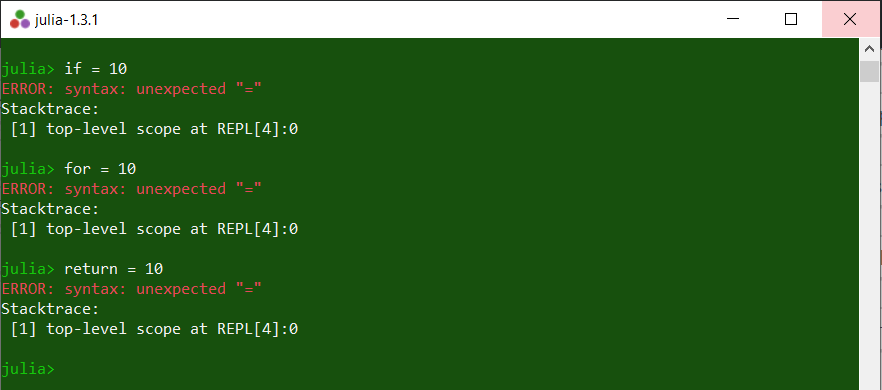Julia Keywords
Last Updated :
26 Mar, 2020
Keywords in Julia are reserved words that have a predefined meaning to the compiler. They are used for some internal processes by the compiler. Keywords can’t be used as a variable name. Doing the same will result in a compile-time error.
Example:
for i in 1:10
if i % 2 == 0
println(i, " is even")
else
println(i, " is odd")
end
end
|
Output
1 is odd
2 is even
3 is odd
4 is even
5 is odd
6 is even
7 is odd
8 is even
9 is odd
10 is even
If we use a keyword as a variable name, the compiler will generate an error:

Important keywords in Julia
| baremodule |
| begin |
| break |
| catch |
| const |
| continue |
| do |
| else |
| elseif |
| end |
| export |
| false |
| finally |
| for |
| function |
| global |
| if |
| import |
| let |
| local |
| macro |
| module |
| quote |
| return |
| struct |
| true |
| try |
| using |
| while |
| |
There are some keywords like abstract type, mutable struct, primitive type which are reserved but creation of variables with abstract, mutable, primitive and type is possible.

Share your thoughts in the comments
Please Login to comment...